Research/Study
27 trans people murdered over last year
Thursday is the annual Transgender Day of Remembrance.
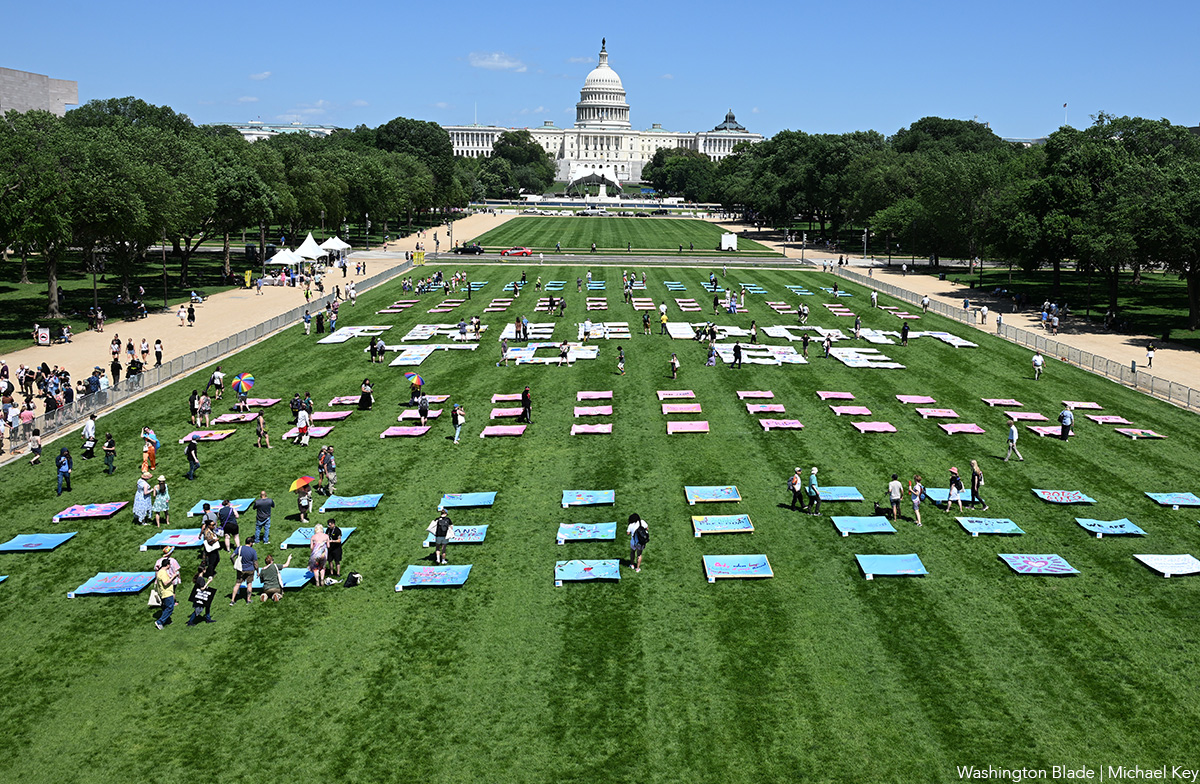
New data on violence against transgender people in the U.S. shows there have been at least 399 cases of fatal violence against trans people since 2013, including 27 murders in the past year alone, with no indication the trend is slowing.
In recognition of Transgender Day of Remembrance, several organizations, including the Human Rights Campaign and Advocates for Trans Equality, released updated reports documenting the disproportionate levels of violence targeting trans people, often because of their gender identity.
A4TE’s Remembrance Report, released Nov. 13, identifies at least 27 trans people known to have died by violence since November 2024.
TDoR, established on Nov. 20, 1999, by trans rights activists, honors the lives lost to anti-trans violence and brings attention to the ongoing crisis disproportionately affecting trans people who are also members of other marginalized communities.
The newly released data shows that 82.3 percent of all known fatal attacks targeted trans women; seven in 10 victims since 2013 were Black, and 71.2 percent of deaths involved firearms.
Fatal violence is not confined to any one region.
The states with the highest numbers of cases include Texas (9.8 percent), Florida (8.3 percent), California (7.1 percent), Georgia (6.1 percent), Louisiana (5.8 percent), Ohio (5.5 percent), Pennsylvania (5 percent), Illinois (4.8 percent), Maryland (4.5 percent), and North Carolina (4 percent).
The report also highlights the pervasive non-fatal discrimination trans people face.
Four in 10 trans and gender-expansive adults experienced discrimination in the past year based on sex, gender, sexual orientation, or gender identity/expression.
This data comes as the Trump-Vance administration escalates its anti-trans policies within the military, as the Washington Blade reported last week. The report calls for an end to anti-trans rhetoric, misinformation, and discriminatory policies at every level of government — from federal agencies to local school boards — noting that only then will trans people achieve the safety routinely afforded to other Americans.
HRC Director for Strategic Outreach and Training Tori Cooper stressed that the issue is about real people, not statistics.
“Our transgender and gender nonconforming siblings deserve to live safe, fulfilling, joyful lives, just like every other member of our society,” Cooper said. “But this plague of violence is robbing us of so much; so many dear friends and loved ones gone too soon, especially Black trans women who continue to bear the worst of this epidemic. Our entire trans community bears the scars of these horrible losses, and it is time for our leaders to ensure that trans people, and all people, are protected by the same policies and procedures. Our lives are as valuable as everyone else.”
HRC President Kelley Robinson also spoke to the rise in violence.
“Every person deserves to feel safe, to be treated with dignity, and to live their truth without fear,” Robinson said. “The annual release of this crucial report, which honors the beloved members of the transgender and gender nonconforming community who have been taken from us in the past year, is a somber and devastating reminder of why our fight for that dream continues.”
Robinson criticized how the current political climate has worsened conditions for trans Americans.
“This year, these deaths are punctuated by a political movement and powerful politicians who have fanned the flames of hate and are driving our trans siblings even further to the margins of society, all as part of a misguided, cynical attempt to divide and conquer the country. Every anti-equality politician, from Donald Trump and his Cabinet, to those in Congress and state legislatures, needs to see these numbers, see these names and faces, and see the cost of the cruelty they have greenlit,” she said.
Robinson concluded by reaffirming HRC’s commitment to defending trans people regardless of who occupies the White House.
“HRC will continue to do everything in our power to fight for our trans siblings, hold hateful politicians to account, and build a world where reports like this are no longer needed,” she said.
Research/Study
HRC study reveals GOP efforts to undermine LGBTQ rights and services in 2026
House Republicans are pushing numerous anti-LGBTQ measures in FY26 bills, that could threaten healthcare, nondiscrimination protections, and LGBTQ rights.
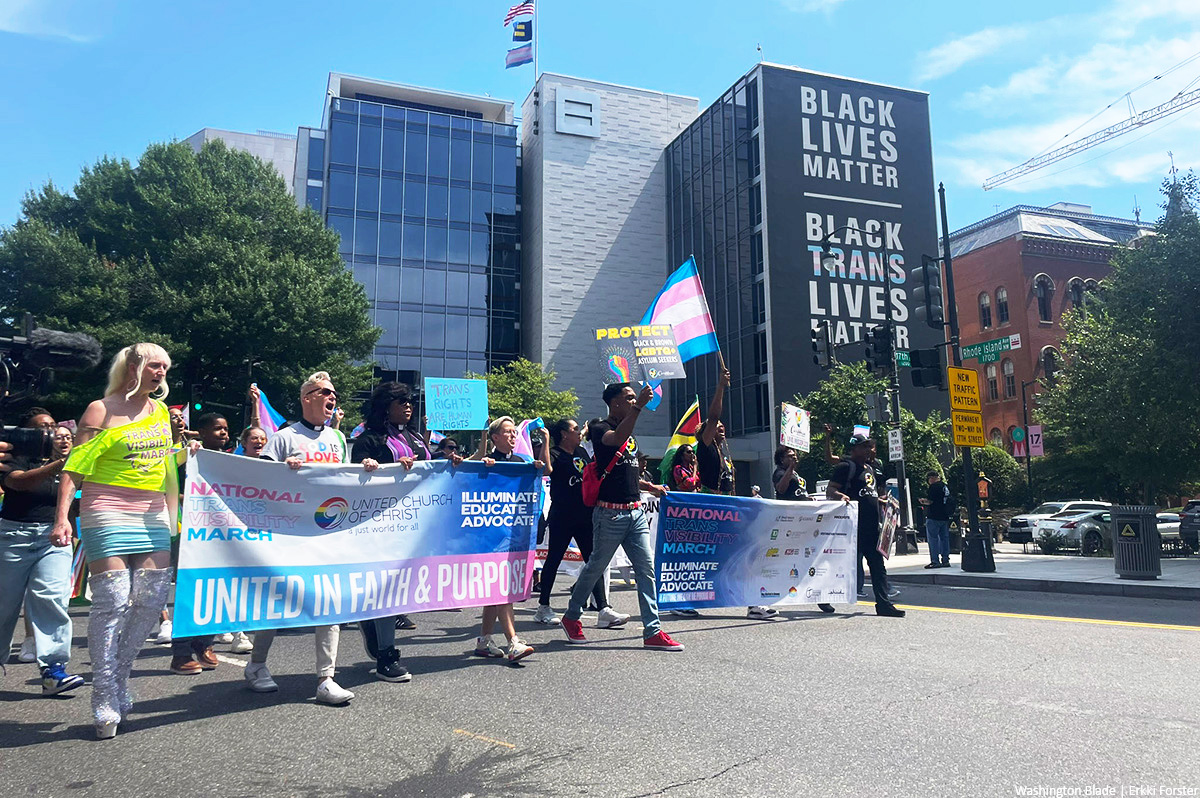
A new study by the Human Rights Campaign shows House Republicans continue to push anti-LGBTQ legislation, despite overwhelming nationwide support for nondiscrimination protections for LGBTQ people.
The study found that Trump-supporting Republicans are attempting to pass 52 anti-LGBTQ riders—unofficial amendments to legislation with little chance of passing on their own—across 12 of the must-pass FY26 federal appropriations bills.
If enacted, these riders would become a significant vehicle for undermining LGBTQ+ equality.
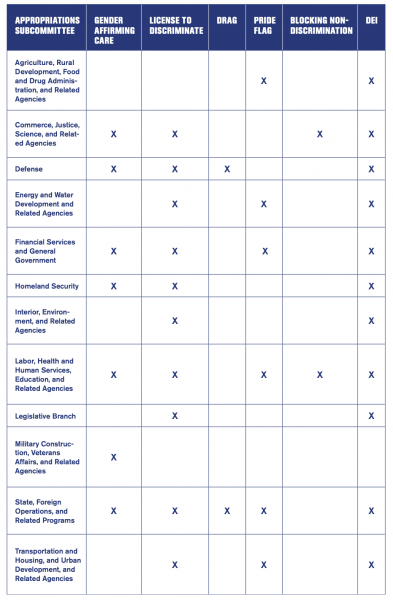
The riders impose broad anti-LGBTQ measures, including blocking gender-affirming care, erasing sexual orientation and gender identity data, restricting nondiscrimination protections, limiting support for LGBTQ+ communities, targeting global LGBTQ+ rights and public health, interfering in medical decisions, and curtailing LGBTQ+ participation in sports, education, and civic life.
In addition to the riders, congressional Republicans have used the rescissions process—where the government takes back money already approved for programs deemed no longer necessary—to remove funding from Biden-era programs that have served as major lifelines for the most vulnerable members of the LGBTQ community, particularly low-income individuals, transgender youth, and people living with or at high risk for HIV.
Together, these efforts, combined with an already hostile White House eager to remove funding from anything deemed too “woke” or “wasteful,” have created a sizable gap in federal funding for programs once seen as foundational. Funding for nondiscrimination, public health, housing, and civil rights is now at risk, as Republicans follow Trump’s lead.
The HRC report shows that these proposed bills would drastically affect many aspects of LGBTQ existence, highlighting actions that will harm LGBTQ Americans.
These include establishing a “First Amendment Defense Act,” which allows individuals, businesses, universities, and federally funded agencies to refuse services to LGBTQ+ people in the name of personal belief; pushing drag bans on military bases and in U.S. foreign aid programming; minimizing gender-affirming care by reducing funding and punishing medical providers; and even applying a global gag rule to gender-affirming care in U.S.-supported foreign assistance programs.
The study also highlights attempts to block Medicaid and Medicare reimbursement for gender-affirming care and efforts to restrict PrEP, HIV testing, and sexual health services—policies that will particularly harm transgender people. It details extensive Republican efforts to redefine “sex” as strictly biological in standalone bills, appearing in riders that would gut Section 1557 protections and affect access to HIV prevention, Ryan White services, Title X reproductive health, and HOPWA housing programs.
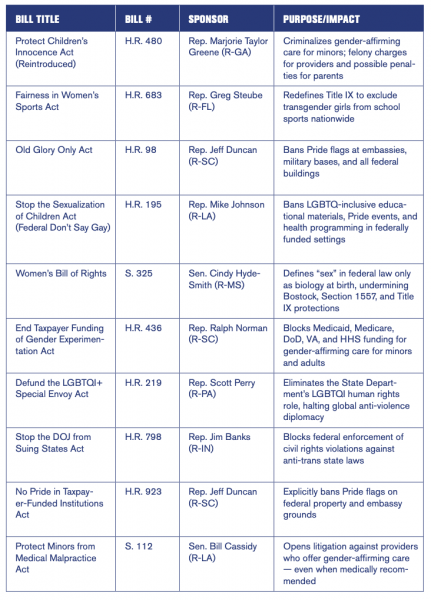
Additional bills listed criminalize or stigmatize LGBTQ identity and are informing restrictions on community health education, HIV prevention campaigns, school-based health centers, and public health research funding at the CDC and NIH.
“This country deserves leadership that uses its power to help meet the needs of the people. Instead, MAGA Republicans make everything about attacking transgender people,” said David Stacy, Human Rights Campaign Vice President of Government Affairs.
“They have now spent three years attempting to poison these must-pass bills with anti-LGBTQ+ riders that polarize the House appropriations process and weaponize the federal government against our community, while doing nothing to address the urgent needs of their constituents. The American people have been clear: anti-equality politicians should stop shirking responsibility and actually serve all of their constituents. Pro-equality members of Congress must defeat the latest wave of anti-LGBTQ+ provisions and hold the line against hate.”
On election night, HRC released a memo showing anti-trans ad campaigns are failing and Americans overwhelmingly support equality. Nearly two-thirds of Americans back federal nondiscrimination protections for LGBTQ+ people, including 58% of independents and 42% of Republicans.
Almost 7 in 10 say politicians are too uninformed about transgender youth healthcare to make fair policies, and nearly half think lawmakers shouldn’t focus on transgender issues at all. And 70% percent worry politicians are targeting LGBTQ youth to divide the country and score political points.
Research/Study
HRC finds more than half of American trans youth will soon face barriers to healthcare
‘LGBTQ+ people are living in a state of emergency.’

The Human Rights Campaign reported Wednesday that more than half of America’s transgender youth are facing or will soon face barriers to access guideline-directed gender affirming healthcare.
The organization’s finding comes as more than 10 states are on the verge of enacting healthcare bans for youth diagnosed with gender dysphoria, in some cases criminalizing physicians and parents for facilitating access to these healthcare interventions for young patients.
HRC’s press release announcing the data noted gender affirming care is supported by medical organizations with relevant scientific and clinical expertise, groups with a combined 1.3 million member physicians and whose guidelines on treatment for minors are backed by decades of research.
Eight states have now enacted laws banning gender affirming care (Ala., Ariz., Ark., Iowa, Miss., S.D., Tenn., and Utah), while three have passed bans (Ga., Ky., and W.Va.) and six have advanced bans through one of the two chambers of their respective legislatures (Idaho, Ind., Kan., Mont., N.D., and Okla.), according to HRC.
The organization noted that Florida effectuated a ban through its Board of Medicine while Texas passed a law last year that deputizes the state’s Department of Family and Protective Services “to investigate the provision or support of gender affirming care by parents, doctors, or others, as child abuse.”
“LGBTQ+ people are living in a state of emergency,” HRC Senior Vice President Jay Brown said in the press release. “Today’s findings illustrate how the ongoing assault against transgender people is taking hold across the country and underscore how dire the situation is growing for our community by the day. “
“Now more than ever, we must fight back against extremism and hold anti-LGBTQ+ politicians accountable for bullying children and terrorizing our families,” Brown said.
In states where bans have taken effect, for some minors who are currently receiving gender affirming care, such as those for whom traveling out of state to retain access to that care is prohibitively expensive or difficult, the law will effectively and forcibly de-transition them.
Because it significantly reduces the likelihood of self harm behaviors and suicide, gender affirming care is in many cases life saving. A study last year by the National Institutes of Health found a link between anti-trans legislation and “suicide- and depression-related Internet searches.”
HRC reports more than 180 bills targeting the trans and nonbinary community have been introduced so far in 2023, of which more than 100 are healthcare bans for trans youth.
The White House has repeatedly spoken out against many of these bills and laws. During a press briefing Wednesday, White House Press Secretary Karine Jean-Pierre condemned Florida Gov. Ron DeSantis’s proposal to expand the state’s controversial “Don’t Say Gay” law such that it would prohibit any discussion or classroom instruction of sexual orientation or gender identity in public school classrooms from kindergarten through grade 12.
During a briefing on March 10, Jean-Pierre discussed another Florida bill that proposes to “give the state the right to remove kids from their parents just because that kid is transgender.
“And just think about that. Just think about a kid who is sitting at home in this community who is listening and hearing elected officials talking about how they want to take away their rights or how they want to even threaten their parents with felony charges for seeking healthcare for their children,” said Jean-Pierre.
National
58,000+ Transgender youth at risk of losing access to gender-affirming care
15 states have restricted access to gender-affirming care or are currently considering laws that would do so
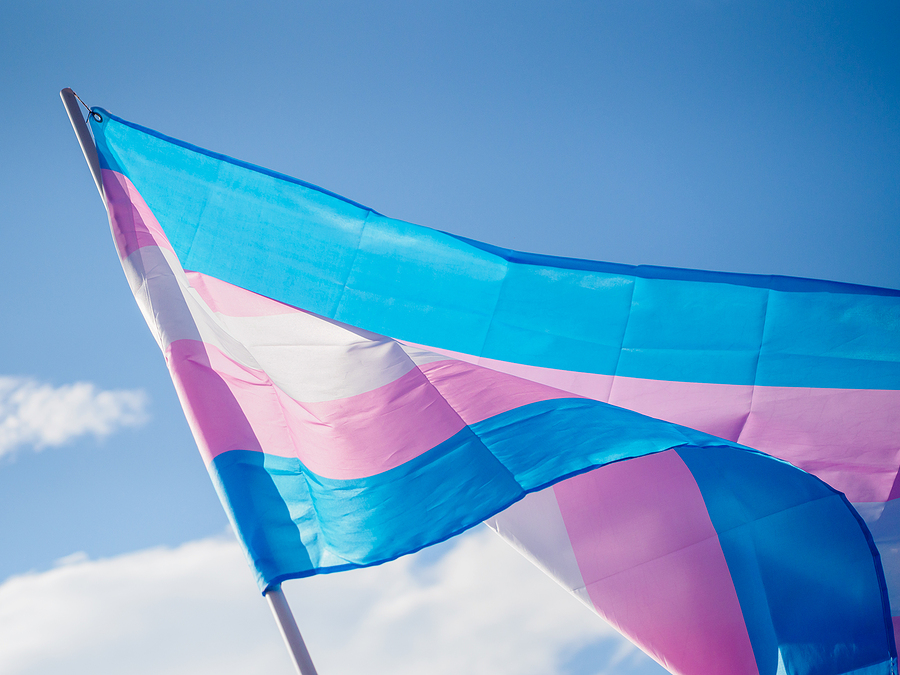
An estimated 58,200 transgender youth and young adults ages 13 and older in the U.S. are at risk of being denied gender-affirming medical care due to proposed and enacted state bans and policies, according to the Williams Institute at UCLA School of Law.
As of March 18, 2022, 15 states have restricted access to gender-affirming care or are currently considering laws that would do so. These bills jeopardize access to care for 54,000 transgender youth ages 13-17—nearly one-third of the estimated 150,000 transgender youth in the U.S. More than 4,000 young adults ages 18 to 20 in Alabama, North Carolina, and Oklahoma would also be at risk of losing access to gender-affirming care under proposed bills that would apply to young people over the age of 18.
The bills carry severe penalties for health care providers, and sometimes families, who provide or seek out gender-affirming care for minors. About half of the bills prohibit insurance companies from offering coverage or restrict the use of state funds for gender-affirming care.
In February 2022, the governor of Texas issued an order restricting access to gender-affirming medical care for transgender youth, classifying it as “child abuse” and directing the state’s Department of Family and Protective Services to investigate any reported instances of health care providers or parents who provide or seek out gender-affirming care for children. The order impacts as many as 13,800 transgender youth in the state.
Gender-affirming medical care includes the use of hormones to delay puberty and to promote physical development that is consistent with a child’s gender identity. It is recommended for transgender youth by the American Academy of Pediatrics and the Endocrine Society.
“A growing body of research shows that gender-affirming care improves mental health and overall well-being of transgender people, including youth,” said lead author Kerith J. Conron, the Blachford-Cooper Distinguished Scholar and Research Director at the Williams Institute. “Efforts that support transgender youth in living according to their gender identity are associated with better mental health.”
Prior research from the Williams Institute found that the risk of past-year suicide attempts was lower among transgender people who wanted and received gender-affirming medical care.
-

 Federal Government4 days ago
Federal Government4 days agoTwo very different views of the State of the Union
-

 Virginia5 days ago
Virginia5 days agoVa. activists preparing campaign in support of repealing marriage amendment
-

 Opinions4 days ago
Opinions4 days agoThe global cost of Trump’s foreign aid ideology
-

 Opinions3 days ago
Opinions3 days agoCriteria for supporting a candidate in D.C.

















